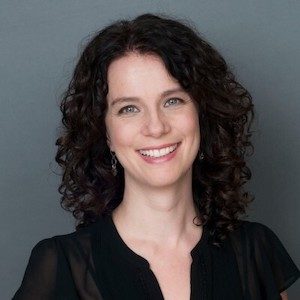A good assessment should reflect how you show up, operate under stress, strengths, limitations, and so on. While assessments can never fully understand the complexity of any human being, they can provide us with the opportunity to address particular things about ourselves in order to see and understand them more clearly.
The Leadership Circle Profile™ (LCP) has many layers and numerous opportunities to dive deeper into topics such as: the fight-flight-freeze response, identity, mindset, triggers, reactivity, importance of both relationship and task, and competencies for effective leadership. This level of naming helps orient people, which is essential, but it is not enough on its own. We must dive deeper, from the general to the specific, in order to create awareness and motivate ourselves to create change.
The most useful takeaways from the LCP in terms of the specifics, come from the language of the reactive behaviors at the bottom of the circle.
There is an ocean-sized difference between general awareness of Reactivity and high scores in Complying behaviors, particularly Pleasing and Passive. A recent client was taken aback when he saw his Protecting scores, specifically Distant and Critical. He would have never used these words to describe himself, but by acknowledging their accuracy, he was able to reflect and grow vertically as a leader.
What becomes available to us when we see the specific behavioral word, as opposed to just the abstract concept of reactivity? Things get real and we can no longer hide from ourselves.
As human beings, we jump hurdles to hide from ourselves. It can be hard to acknowledge that we are pleasers, arrogant, perfectionists, etc. We want to believe that we are the hero of our own story and that our challenges stem from other people and situations beyond our control. The insights that arise when we consider the impact of our specific reactive behaviors, and how they actually get in the way of what we most want, is humbling for any of us.
It takes tremendous courage for us to really look within ourselves and acknowledge our flaws, but once we can, we are able to grow as leaders.
I moved to Toronto from South Africa when I was 10 years old. I entered the 5th grade halfway through the year and had a very difficult time integrating with the group of girls who had all been friends since kindergarten. In order to cope, the strategies I relied on were staying quiet, out of the way, and putting one foot in front of the other no matter what. While these strategies helped me get through a difficult period of time, they stuck with me and became a core part of my go-to behaviors under stress.
When I first looked at my LCP report, I was immediately surprised to see that my Passive score was so high. At the time, I considered myself to be a mover and shaker in my own way. I’m productive, organized, and take pride in being someone who gets stuff done. As I self-reflected, it was clear that this score pointed to something beyond my surface-level energy and productivity. It named my old behavior with its accompanying beliefs that remaining quiet is the safest option.
Without understanding these deeper mental models, I would always be at the mercy of these strategies and their inherent limitations. With nowhere to hide, I began the work of challenging my old beliefs, surrounding myself with people who encouraged my growth, intentionally putting myself out there no matter how uncomfortable, and becoming much more tuned in to when and why I felt compelled to stay quiet.
Now when I notice that my old friend ‘Passive’ has shown up, I gently say “I see you, but I’m going to choose something different now.”
Our limiting beliefs and outdated survival strategies keep us operating at a stagnant level. If we truly want to grow beyond them and lead more powerfully and effectively in this complex world, we must come out of hiding and step up to the plate.

Tamar holds the International Coach Federation’s Professional Certified Coach designation. She is an Adler Certified Professional Coach, and also completed the Organization and Relationship Systems (ORSC) coaching program. Tamar completed her Master of Education in adult education with a focus on workplace, learning and change from the Ontario Institute for Studies in Education at U of T, and has a certificate in applied mindfulness meditation from the University of Toronto School of Continuing Studies. Finally, Tamar is a certified practitioner of EQ-i 2.0, AQai, Tilt 365, and the Leadership Circle Profile.
Connect with Tamar on Linked In, or reach out anytime at tamar@workmodern.com.





